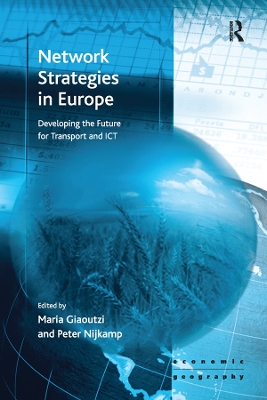Economic Geography
2 total works
The twenty-first century will be the age of global interaction and organized patterns of networks. This important book addresses the strategic dimensions of networks, especially in transportation and information communication technology in Europe. The authors examine the challenges brought about by European unification and accession, through which a coherent and efficient European network system will need to be implemented. The topics addressed include the emergence of new network structures and strategies, the implications of European integration policies for network operations and developments, and the assessment of network synergy effects.
Tourist visits used to be a less common activity in the past. However, more people than ever now make leisure trips, making this an era of mass tourism. This drastic change in spatial behaviour is not only caused by economic prosperity, but the scale of this phenomenon means that it is able to generate economic growth, making tourism a key factor in regional development policy. One of the main challenges of current regional policy is to market the attractiveness of an area, thereby increasing tourist visits and subsequent revenue. In particular, regions are attempting this through the use of Information and Communication Technologies (ICT), which offer information on interesting places, and efficient methods for organizing and booking trips. This book examines the interconnections between tourism, ICT and regional development. Bringing together a range of European case studies illustrating various ICT and policy innovations, it not only critiques current activity by regions in terms of tourism development, but also considers how this sector is likely to continue to grow.

